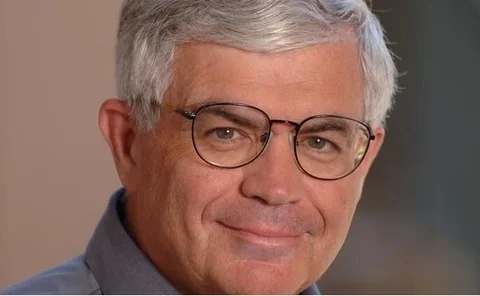Robert Pringle
Stability under the 2% inflation standard is a chimera
An inflexible standard of value that lets the market decide how much money to produce would be superior, write Brendan Brown and Robert Pringle.
An inside story on the central bank gold agreement
Robert Pringle reveals details of Mbeki’s appeal to central bankers
“What would Allan say?”
Central Banking Publications founder Robert Pringle finds pearls of wisdom in his email correspondence with the late Allan Meltzer
The story of Central Banking
Founder Robert Pringle recalls how after a slow start Central Banking achieved lift-off
Reserve managers look to exit bonds sooner as global ‘taper' looms
Fed taper has reserve managers fretting, new Central Banking Publications survey of 69 central banks shows; ETFs are gaining traction as reserve asset class
Robert Pringle's Viewpoint: A pride of central banks
Much current criticism of central bankers misses the point, but there is no room for complacency
G-20 inflation measure paves way for co-ordinating policy
New statistic aims to fill ‘data gap' identified in wake of the global financial crisis; follows growing calls for globally coordinated monetary policy as countries fret over effects of QE
Book notes: The Money Trap
Robert Pringle’s new book is driven by a sense of missionary zeal
Goodhart hits out at current macro-prudential focus
Economist Charles Goodhart agrees with Robert Pringle that risk and return incentives need to change at banks to ensure future financial stability. But permitting failures is a step too far
A retail ring-fence for the UK
Robert Pringle and Hugh Sandeman analyse the Independent Commission on Banking’s interim report
Interview: Sir Andrew Large
The former deputy governor of the Bank of England talks to Robert Pringle about how officials can better safeguard stability, and bankers’ behaviour in the run-up to the crisis
Why monetary base control can offer stability
There is a way of replicating the big achievements of the gold standard without going back to gold, argue Brendan Brown and Robert Pringle.
Twenty years of Central Banking Publications
This anniversary was held on 24 March at the Reform Club. The guest of honour was Jacques de Larosière, who congratulated Robert and Central Banking on their achievement
A feeble response to an unprecedented crisis
Officials have failed to deliver on their promises of a regulatory overhaul. It is a pity, writes Robert Pringle, the chairman of Central Banking Publications.
Bring back Glass-Steagall?
Suddenly, everybody is talking again about separating merchant banking from commercial banking. Ideas that a few months ago might have been dismissed as crackpot - bringing back a version of the Glass-Steagall legislation - now look as if they were ahead…
Why we must say no to nationalisation
In the UK, nationalisation is increasingly being advocated by many experts as a solution to the banking crisis. Such a step would be a disaster for the UK and the City of London, argues Robert Pringle, the editor-in-chief of Central Banking journal.
London's lifelines lack coherence
The dangerously mixed messages underlying the British government's rescue attempts threaten to derail efforts to secure stability, argues Robert Pringle, the editor-in-chief of Central Banking journal.
Why failed bank executives must go
Senior management of banks that require public assistance should be replaced, says Robert Pringle, the editor-in-chief of Central Banking journal.
Without proper incentives we are doomed
The financial system cannot survive in anything like its present form if bankers continue to make profits and taxpayers assume the losses. Yet that is the trend, certainly in the United States with its ill-advised Paulson bailout, and increasingly in…
Why now is the time for the UK to join the euro
Just when nobody is expecting it, now could be a good time for the British government to announce its intention for the UK to join the euro area, says Robert Pringle, the editor-in-chief of Central Banking journal.
Noyer's lonely moment
Robert Pringle, the editor of Central Banking journal, speculates on what kind of questions went through the mind of Christian Noyer, governor of the Banque de France, when he first learned of the Societe Generale disaster.












